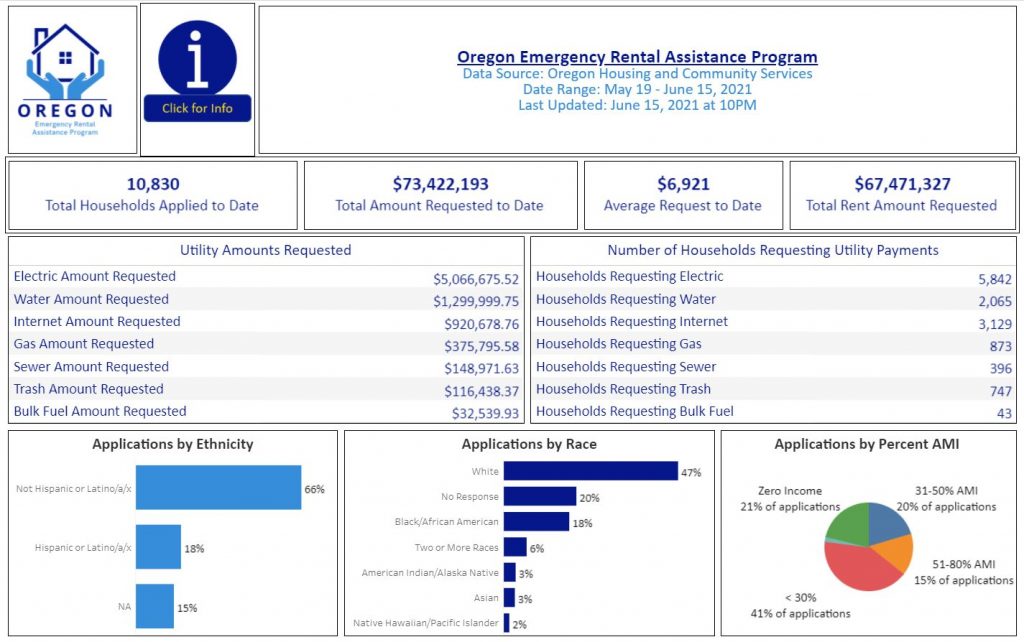HRC calls for emergency in advance of July ‘eviction cliff’
4 min read
Eugene's Human Rights Commission is asking for an emergency declaration in advance of expected massive renter evictions in July.
With rent coming due for July, tenant advocates predict massive evictions. Tim Morris represents the Springfield Eugene Tenant Association (SETA).
Tim Morris, SETA: [00:00:10] July is coming soon. I want to highlight that starting July 1st evictions for nonpayment of rent can resume. July rent is coming, it’s going to resume like it normally did pre-COVID.
Commissioner Bonnie Souza: [00:00:25] The numbers that I’ve seen say that there’s a lot more back rent due than has been received by the state. And so if you could talk about what alarm bells that we should be considering.
Thank you for supporting
local citizen journalism
Tim Morris, SETA: [00:00:38] Out of 10, the amount of alarm bells I would say is nine. Statewide, the very rough numbers that we’re seeing is somewhere between 60,000 and 100,000 renter households will not be able to afford July’s rent. So we are seeing, and SETA is projecting, a massive eviction cliff. The projected date there is about July 26th is when the first tenants will be forcibly evicted and no longer allowed on the property. So by the end of the month of July, tens of thousands of renters across Oregon will have received a court date and will be forcibly told to leave. OHCS (Oregon Housing and Community Services), they do have the funds, they are processing the applications. However, there a significant amount of applications. Washington County has reported receiving 1500 applications. Even at full staff, they’d only be able to process about 400-600 of those.
So even for that particular county within this month there is not a whole lot of time and that there will be applications that they have not even addressed. And 16,500 Oregonians have already currently filed for the Oregon emergency rental assistance program so it will take time to get through those. It takes time to go back and make sure all the information is there and/or wait for some of the incomplete applications that might be missing something. Or in my particular case, when I applied for rent assistance, uploading a McDonald’s receipt, rather than my current income, which was very fun.
SETA is advocating for more time availability for renters to be able to earn enough, to go back to work. Renters primarily make up jobs that are public-facing. So service industry, food, retail and only, I believe the beginning of last week, has Lane County moved to having those fully open. So renters have not have a lot of time to go back to work and begin earning what they used to.
Yeah, there’s a lot of really significant issues that renters are facing right now. And like I said, for alarm bells, nine out of 10. Renters are some of the most vulnerable folks and, have some of the hardest housing insecurity and housing struggles that we see out of the, all the housing demographic types. And following devastating wildfires, a global pandemic housing crisis , and an economic crisis that existed way before the pandemic even was heard of, it’s been a real struggle, but thanks to the allies and thanks to advocates that are on the front lines, we’re able to help provide support and bring help to those that need it.
Commissioner Daniel Borson: [00:03:23] If evictions start happening, that it seems to me that cities such as Eugene and Springfield would be impacted by that increase in evictions. Do you know what other localities around the state are doing, if anything to prepare for that?
Tim Morris, SETA: [00:03:46] That’s one of the large questions is what our locality is doing to be able to help mitigate some of the issues okay. In the nicest way possible. I can honestly say that there is growing concern and that there is a definite acknowledgement of the issues. I’m not sure what, what really truly is being done to, to address it. I know that there’s been conversations about increasing homeless campsite capacity here in Eugene, which I find a really troubling solution to a potential eviction moratorium ending that we’re yeah. But yeah I’m not fully really able to answer that question honestly today.
Commissioner Bonnie Souza: [00:04:28] You said that you are in contact with, or you’re talking with, some elected officials, what are you telling them, what’s the best to give people who can make decisions and make things happen?
Tim Morris, SETA: [00:04:40] Yeah. that’s one of the really challenging issues that we’re facing as well. We’ve been raising the alarm bells since about last year about the pending July eviction cliff that could be happening if extended protections are not happening. We’re sharing what we’re seeing on the hotline report. We’re sharing changes in the laws and where gaps could be filled. It’s a really difficult conversation. It’s such a challenging time and there’s a lot of complexity. If I can be quite frank, I don’t think that the eviction cliff was given the attention that it deserved. So we’re now scrambling.
John Q: [00:05:14] The Human Rights Commission approved an emergency declaration. It asks the City to deploy its CERT volunteers to help with the growing homeless crisis. Commissioner Heather Sielicki.
Commissioner Heather Sielicki: [00:05:26] “…Activation of the community emergency response team to develop and implement a hazardous weather plan, adequate in scope and scale to the impending wave of newly evicted…”
John Q: [00:05:37] Chair Amanda McCluskey counted the votes.
Commissioner Amanda McCluskey: [00:05:39] The motion carries so great. Okay. We will work on that over the next couple of weeks.




